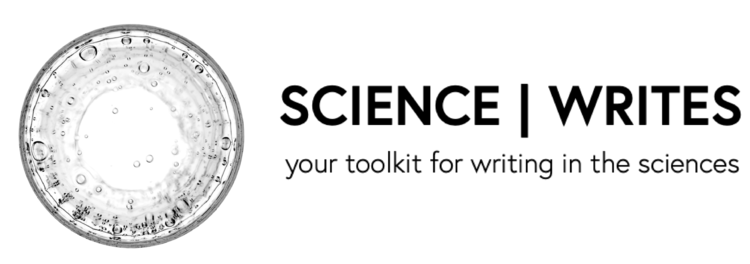WRITING & PROCESS
Writing is integral to the scientific process. Writing plays an important role not just in communicating scientific ideas to others but also in thinking through those ideas in the first place. When we start to try to explain our ideas on paper, the weaknesses in own thinking often come through, and working through those weaknesses makes us better researchers.
George Whitesides (2004) points out that a “paper is not just an archival device for storing a completed research program: it is also a structure for planning your research in progress” (p. 1375). You should be writing at the same time you are conceptualizing your research, and you should continue writing as you are conducting your research.
For example, before conducting any experiments (if you are writing an empirical research paper) or diving deeper into a literature search (if you are writing a conceptual paper), you might create an outline that lists your current responses to some basic questions: 1) Why am I doing this research? 2) What do I already know? 3) What question am I trying to answer or what problem am I trying to address? 4) What do I expect to find? 5) What would those findings mean? Then, as you are conducting your research, you continue to fill in the outline by revising, elaborating on, and correcting what you have written and by adding new information and raising new questions. And then you will continue your research to answer those new questions and continue to build out your outline.
In other words, writing and researching are iterative processes. The writing informs the research; the research informs the writing, which then further informs the research and so on.
WRITING IN THE SCIENCES
Writing isn’t usually the first thing you think of as a defining feature of the work in the sciences. And yet, successful scientists need to be able to write well, whether to communicate ideas to the field through publications or to win grants that support research. In your science classes at Harvard, writing will be an important component of the thinking and reasoning process. In your science classes, just as in your other classes, your task is to practice the thinking dispositions of the scholars in the field, and writing is an important component of the thinking and reasoning process.
You may think of science writing as very technical and therefore a different kind of writing. While science content is indeed specialized, the basis of science writing relies on the same Elements of Argument that you learned about in Expos. The goal of science writing is to persuade the reader of your thesis—your solution to a problem or answer to a question based on the analysis of evidence. You have to consider your audience so that you write for clarity; present your ideas in a structured and organized way; consider alternative interpretations; use accurate style and an appropriate stance.
You will need to adapt the way that the Elements are used; in any discipline, they manifest in ways that are appropriate to the purposes of the field. You need to look for opportunities to transfer what you learned in Expos. The language that your professors or TFs use might not be the same, but the writing elements that they value are.
